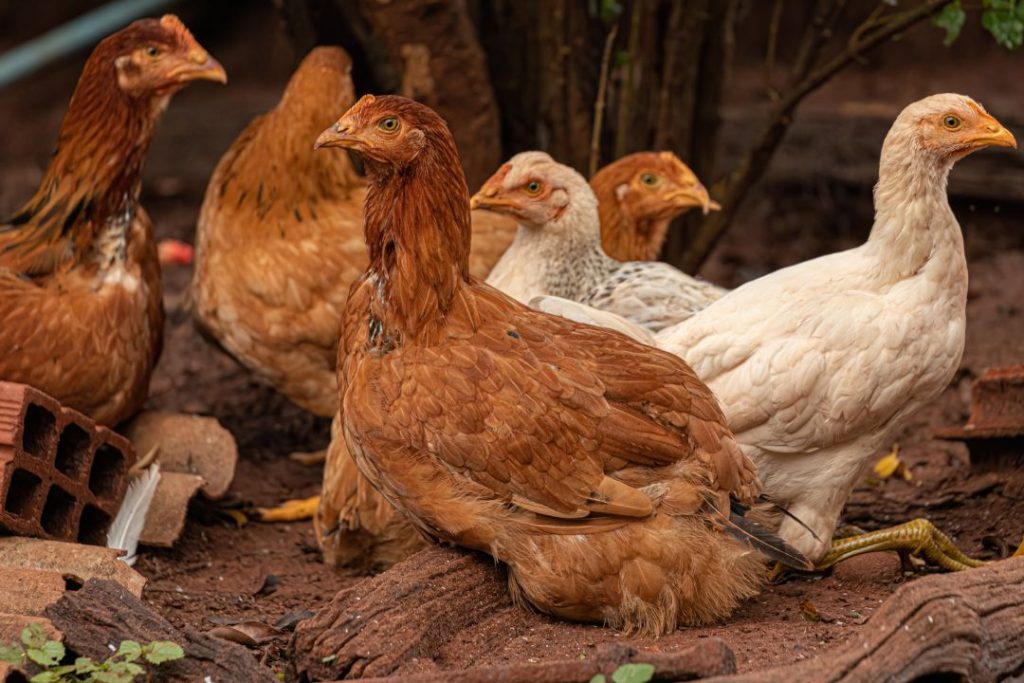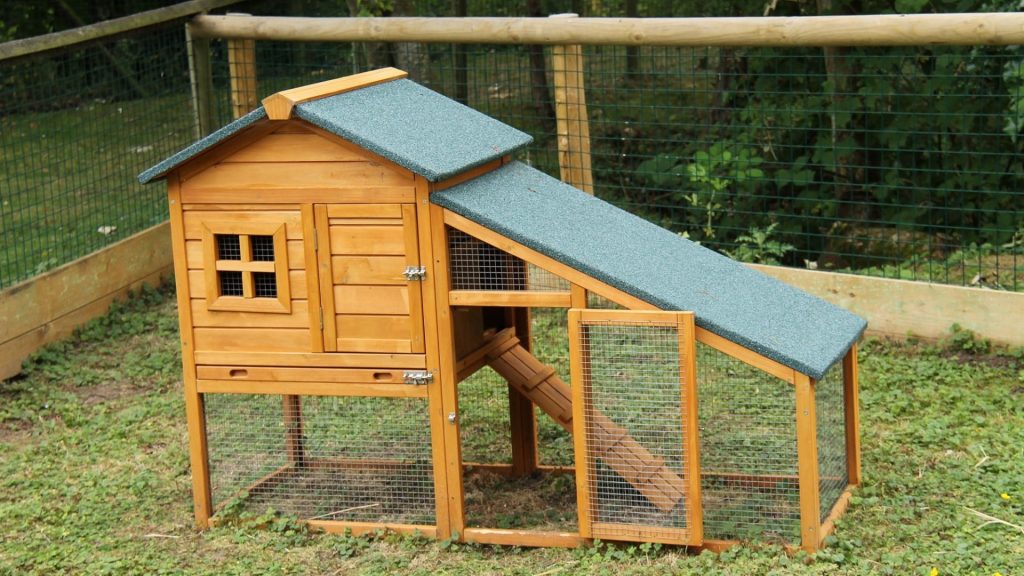Before diving into the natural remedies world, it’s crucial to grasp the basics of gape worms. The chicken keeper must know “how to treat gape worms in chickens naturally”.
These slender, thread-like parasites are scientifically known as Syngamus trachea. Primarily, these worms reside in your chicken’s trachea (windpipe). Gape worms are a common threat in poultry farms and can lead to respiratory distress if left untreated.
However, if your chicken gets affected by gape worms, you can treat your chicken naturally in specific ways. The effective natural remedies are homemade herbal infusions, dietary adjustments, coops, regular cleaning and sanitization, deep litter method, etc.
You can identify and manage gape worms by looking for symptoms like intense gaping, coughing, reduced appetite, and decreased egg production. Determining your chickens’ health is vital to maintaining a happy and disease-free flock.
In today’s article, we will take you through how to treat game worms in chickens naturally. So keep going!
Common Symptoms of Gape Worm Infestation
Detecting gapeworm infestation in its early stages is crucial to ensure your chicken’s health and well-being. These pesky parasites can cause discomfort and health issues for your chickens. So before jumping on how to treat gape worms in chickens naturally, you must know its symptoms.
Keep a close watch on your flock and be on the lookout for the following telltale signs that could indicate a gapeworm infestation:
1. Frequent and Exaggerated Gaping or Struggling for Breath
One of the early signs of a gapeworm infestation is the frequent and intense gaping or gasping for air in your chickens. If you observe your chickens stretching their necks unnaturally or showing signs of respiratory distress, it’s time to investigate further.
2. Coughing and Raspy Breathing Sounds
Listen closely to your flock’s sounds. If you notice your chicken’s unusual coughing or wheezing sounds while they breathe, it could indicate gape worms affecting their respiratory system. Gape worms can irritate the trachea, leading to these distinct sounds.
3. Reduced Appetite and Noticeable Weight Loss
Chickens affected by gape worms might show a sudden decrease in appetite. Observe whether some chickens are losing interest in their usual feed and consequently shedding weight. It’s essential to consider the possibility of a tapeworm infestation.
4. Decreased Egg Production
Keep track of your hens’ egg-laying habits. A gapeworm infestation can stress the birds and lead to a drop in egg production. If you notice a sudden decline in the number of eggs being laid, it’s worth investigating the health of your flock.
Attention to these symptoms can provide valuable insights into your chickens’ health. Early detection of a gapeworm infestation allows you to take action swiftly and implement appropriate measures.
By addressing the issue promptly, you can alleviate your chicken’s discomfort and prevent the infestation. Your healthy and thriving flock are:
- Results from regular observation.
- Quick responses to health issues.
- Proactive measures to ensure their well-being.
How To Treat Gape Worms in Chickens Naturally?
When treating gape worms in chickens, the allure of natural remedies is undeniable. Unlike chemical treatments that might raise concerns about potential residues in eggs and meat, home remedies provide a safer and more holistic approach.
By using natural ingredients and methods, you address the gapeworm issue and promote overall chicken health without worrying about harmful side effects.
Let’s explore some of the most effective home remedies to help your chickens overcome gapeworm infestations.
Using Wormwood and Its Benefits
Wormwood, scientifically known as Artemisia absinthium. It is a potent herb with well-documented antiparasitic properties.
This herb contains compounds like thujone and santonin that can help eliminate gape worms and other internal parasites from your chickens’ system. To create a wormwood infusion, follow these steps:
Ingredients:
- Dried wormwood leaves
- Boiling water
Instructions
a. Boil water and let it cool slightly.
b. Place a small handful of dried wormwood leaves in a glass jar.
c. Pour the hot water over the leaves and cover them completely.
d. For 30 minutes to an hour, allow the mixture to steep.
e. Strain the infusion and let it cool down.
Harnessing the Garlic Power
Garlic contains sulfur compounds like allicin, which can help combat gape worms and boost chickens’ immune systems. You can use garlic in various ways:
- Garlic-Infused Water: Crush a few garlic cloves and add them to your chickens’ drinking water.
- Garlic Powder in Feed: Mix a small amount of garlic powder into your chickens’ feed. This gradual consumption can aid in preventing worm infestations.
Incorporating Diatomaceous Earth into Feed
Diatomaceous earth (DE) is a fine powder derived from fossilized algae. It’s rich in silica and works by damaging the exoskeleton of parasites, including gape worms. It leads to dehydration and death.
Pumpkin Seeds’ Role in Your Chicken Health
Pumpkin seeds are a delicious treat for chickens and a natural dewormer. It has been shown to paralyze and eliminate parasites from the digestive tract.
Introducing pumpkin seeds into your chickens’ diet can be a preventive measure against gape worms. Simply offer a handful of seeds as an occasional treat or mix them into their feed. These home remedies lay the foundation for a natural approach to treating and preventing gape worms in your chickens.
You’re proactively safeguarding your flock’s health by incorporating these herbal infusions, tinctures, and dietary adjustments.
Enhancing Coop Hygiene
Maintaining a clean and hygienic coop environment is pivotal when dealing with gapeworm infestations. Cleanliness prevents the spread of parasites and creates a healthier living space for your chickens.
Here are some effective strategies to enhance coop hygiene and minimize the risk of gapeworm infestations.
Regular Cleaning and Sanitization
To keep your coop free from potential sources of infection, you should clean it regularly. Perform the following tasks on a routine basis:
- Remove Droppings: Regularly clean out droppings and soiled bedding material. Gape worms thrive in moist environments, so reducing excess moisture can deter their growth.
- Replace Bedding: Replace bedding with fresh, clean straw or wood shavings. This reduces the chances of worms finding a breeding ground in damp bedding.
- Disinfect Surfaces: Use a poultry-safe disinfectant to clean coop surfaces, roosts, and nesting boxes. This helps eliminate any lingering parasites or bacteria.
Deep Litter Method for Reducing Worm Burden
The deep litter method effectively maintains coop hygiene while harnessing the benefits of natural decomposition. You can implement it in the following ways:
- Start with a Base Layer: Begin with the clean bedding material layer, such as straw or wood shavings.
- Add Carbon-Rich Material: Regularly add carbon-rich materials like dried leaves or straw to the bedding. These materials help absorb moisture and aid in decomposition.
- Turn the Litter: Gently turn the litter to aerate it every few weeks. This promotes decomposition and helps prevent the buildup of harmful pathogens.
- Natural Breakdown: Over time, the litter will break down, creating a warm and compost-rich environment that discourages the growth of parasites.
Pasture Management: A Natural Preventive Measure
Providing your chicken’s access to a well-maintained pasture enriches their diet and contributes to gapeworm prevention. A healthy and diversified foraging area can reduce the chances of your chickens coming into contact with infected birds or contaminated soil.
Here are some pasture management strategies to consider:
- Rotational Grazing: Implement a rotational grazing system where chickens are periodically moved to different pasture areas. This prevents overgrazing, reduces parasite buildup, and promotes a healthier environment.
- Resting Pastures: Allow pastures to rest and recover after chicken grazing. This gives time for parasites to die off without a host.
- Plant Natural Dewormers: Introduce plants with natural deworming properties to your pasture. For example, planting herbs like wormwood, thyme, and oregano can help deter parasites.
Boosting Chickens’ Immunity Naturally
A robust immune system is a key defence against gapeworm infestations and other health challenges. You can strengthen their natural defences by providing your chickens with a balanced diet and incorporating immune-boosting herbs.
Balanced Nutrition for Strong Immune Systems
A well-balanced diet is your chicken’s good health foundation. Nutrient-rich feed ensures your flock receives the vitamins and minerals needed to maintain strong immune systems. Focus on providing:
- High-Quality Feed: Choose a commercial feed specifically formulated for chickens that meet their nutritional requirements.
- Fresh Fruits and Vegetables: Give your chicken a variety of fresh vegetables and fruits as treats. These provide additional vitamins and antioxidants that support immune function.
Vitamin-Rich Herbs in Your Chicken Garden
Herbs aren’t just flavorful additions to your cooking; they can also be valuable additions to your chickens’ diet. Many herbs are rich in vitamins and antioxidants that boost immune function and help in parasite control. Consider growing the following herbs in your chicken garden:
- Oregano: Oregano is known for its antimicrobial properties and can help keep parasites at bay.
- Thyme: Thyme contains thymol, a natural compound with antiparasitic and antibacterial effects.
- Echinacea: Echinacea enhances immune response and can benefit overall chicken health.
- Calendula: Calendula petals are packed with antioxidants that support immune function and skin health.
By nourishing your chickens with immune-boosting foods and incorporating these herbs, you’re providing a natural shield against gapeworm infestations.
Spotting Gape Worms Early
Early detection is essential for effective treatment. Regular health checks and observations can help you identify potential gapeworm infestations before they become severe.
Regular Health Checks and Observations
Make it a habit to conduct regular health checks on your chickens. This involves observing their behaviour, appearance, and any signs of discomfort. Regularly monitor:
- Breathing Patterns: Keep an eye on any abnormal respiratory behaviour, such as excessive gaping or coughing.
- Appetite and Behavior: A sudden loss of appetite or lethargy can indicate health issues, including gapeworm infestations.
Conduct a Gape Worm Check
Perform a gapeworm check on your chicken.
- Gentle Restraining: Hold your chicken securely but gently to prevent stress.
- Open the Beak: Gently open the chicken’s beak and peer down its throat with a flashlight.
- Check for Worms: Look for thin, thread-like worms that may be present in the trachea. These worms might move or wriggle upon inspection.
Early detection through regular checks empowers you to take timely action and prevent gapeworm infestations from worsening.
Creating a Calming Chamomile Bath
Creating a chamomile bath can help ease respiratory distress and provide relief to your chickens. Follow the ways below to prepare a chamomile bath:
Ingredients:
- Dried chamomile flowers or chamomile tea bags
- Warm water
Instructions:
a. Using dried chamomile flowers or tea bags, brew a strong chamomile.
b. Allow the tea to cool to a comfortable temperature.
c. With the chamomile tea, fill a shallow container.
d. Gently hold your chicken and, for a few minutes, immerse its lower body in the bath.
e. Allow the chicken to air-dry in a warm and dry area.
Soothing Lavender Bath for Gape Worm Relief
Lavender is known for its aromatic and calming properties. A lavender bath can help relax your chickens while relieving gape worm-related discomfort.
Ingredients:
- Dried lavender flowers or lavender essential oil
- Warm water
Instructions:
a. Create a lavender-infused water. Steep dried lavender flowers in warm water or add the lavender essential oil in a few drops.
b. Ensure the water is at a comfortable temperature.
c. Place your chicken in a shallow container with the lavender-infused water. It allows its lower body to soak.
d. After a few minutes, gently remove your chicken and let it dry in a warm area.
Herbal baths offer a gentle way to support your chickens’ recovery from gapeworm infestations. It provides comfort and relief.
Isolation and Quarantine for New Chickens
When introducing new birds to your flock, isolating and quarantining them before integration is essential.
This prevents the potential introduction of parasites, including gape worms, to your existing flock. Quarantine new birds for at least two to three weeks, keeping them in a separate, clean, and sanitized space.
Implementing Rotational Grazing
Continuing the rotational grazing practice is a long-term strategy for gape worm prevention. Rotational grazing reduces the risk of overexposing your chickens to parasite-infested areas, giving pastures time to recover.
As our journey through natural gapeworm treatment and prevention ends, let’s explore the final section: when to seek professional help.
When to Seek Professional Help For Gape Worm Control?
Natural remedies are effective in many cases. There are instances when professional intervention is also necessary.
If you notice severe symptoms or your chickens’ health deteriorates despite your efforts, you should seek the veterinarian’s advice. A professional can diagnose properly and recommend suitable treatments to ensure your chickens’ well-being.
Wrapping Up
From herbal infusions and dietary adjustments to coop hygiene, pasture management, and immune-boosting strategies, we’ve covered many methods to safeguard your flock’s health.
Adopting these natural remedies can address gapeworm infestations and promote your chicken’s overall well-being. A little extra care goes a long way. It ensures your chickens live happy and healthy lives, free from gapeworm infestations and discomfort.
Frequently Asked Questions
What are gape worms in chickens, and how do they affect them?
Gape worms, also known as Syngamus trachea, are parasitic worms that reside in chickens’ trachea (windpipe). They can lead to respiratory distress, coughing, gaping, and reduced egg production. Treating gape worms naturally is crucial to ensure your chickens’ health and well-being.
Can I use garlic to treat gape worms in my chickens?
Yes, garlic is an effective natural remedy for gape worms. Garlic contains allicin, a compound with antiparasitic properties. Crushed garlic cloves can be added to drinking water or mixed into feed to help combat gapeworm infestations and boost overall immune function.
Are herbal baths effective in treating gape worm-infected chickens?
Yes, herbal baths can offer relief to chickens suffering from gape worms. Herbal infusions like chamomile and lavender have calming and anti-inflammatory properties that ease respiratory distress and provide comfort. These baths are gentle and can contribute to the chickens’ recovery.
How can I boost my chickens’ immunity to prevent gapeworm infestations?
A balanced diet and incorporating immune-boosting herbs are crucial to strengthening your chickens’ natural defences. Provide high-quality feed, fresh fruits, and vegetables to supply essential nutrients.



